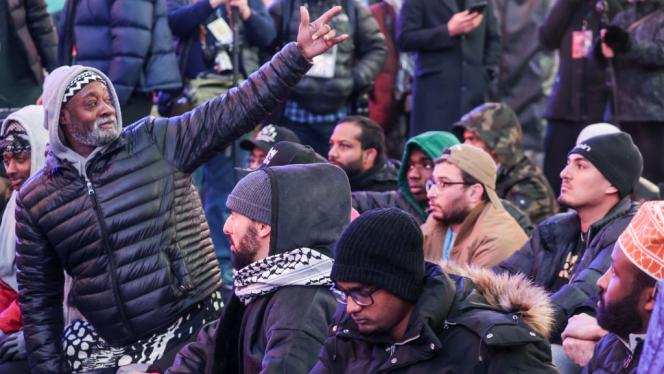Friday 22 November 2024
Ramadan 2024 arrives following a deadly year in several Muslim countries

From war to natural disasters and man-made tragedies, the passage from last Ramadan to this one has been concerningly deadly.
It's become passé to suggest that the ‘Muslim world’ is in turmoil. This quip is the trite punchline of our time. People may differ on when exactly it is that the turmoil began: was it the so-called ‘War on Terror’, the onset of the cold war, the collapse of the Ottoman Empire or the colonial era? Whatever your conclusion, 2023 was an extraordinarily brutal year for many Muslim majority countries and between this Ramadan and the last, at least 100,000 of people have lost their lives in wars and natural disasters. Columbia historian Adam Tooze coined the term “polycrisis” in 2022 to describe the multiple and cross-cutting catastrophes humanity is currently struggling with. We wonder if his expression fully captures the scale of the challenge when we consider the limited means some of these countries have to deal with them.
The first fatal disaster of the year hit in early February when a magnitude 7.8 struck south-east Turkey and parts of northern Syria completely flattening parts of cities from Antakya to Kahramanmaraş. “I thought the earth was going to split open under my feet,” Muna al-Omar, an Antakya resident said. Sinan Şahan, trader in faraway Gaziantep, recalled the devastating 1999 earthquake: “this was more severe than that,” he said.
The area impacted by the earthquake was estimated to be the size of Germany, crossing into parts of Syrian already in dire condition due to a decade-long war waged by Bashar al-Assad and his Russian and Iran allies. Ismail Alabdullah, a volunteer with the White Helmets in Idlib, already housing over 4 million internally displaced people, said he initially thought the shaking was caused by helicopters dropping barrel bombs before he realised, they were facing something much greater. “We are used to digging people out of the rubble, but this is different,” he said. “There is nothing left, nothing at all.” At least 55,000 people were suddenly killed due to the disaster. Those who survived had to face the elements, as the biting cold of winter kicked in.
Another earthquake days later was overshadowed by the scale of the Turkey-Syria earthquake. In Afghanistan’s rural Herat province, a 6.3 magnitude earthquake killed almost 3,000 people, which was quickly followed by two more earthquakes in the same region of similar power. Afghanistan, like northern Syria, was already in the midst of a humanitarian crisis, but the quakes exacerbated the bad conditions, overwhelming the poorly stocked regional hospitals.
By late March, Ramadan had arrived, but that wasn’t enough to prevent two generals throwing down in Sudan and plunging the country into war.
In mid-April, escalating tensions between RSF leader Mohamed Hamdan Dagalo, better known as Hemedti and Sudan’s armed forces head Abdulfatah al-Burhan reached a crescendo. The tenuous peace between the two men broke down in dramatic fashion as fighting broke out between them in the capital Khartoum and across the rest of the country. Several abortive attempts by Igad, Saudi Arabia, the US and the African Union to bring about an accord between the two failed and as Sudan slipped off the news agenda, bodies piled up and we became numb to the news. Our collective lack of attention has contrasts depressingly with how bad things have gotten since. “It’s not a forgotten crisis. It’s a wholly ignored crisis,” Kitty van der Heijden of Unicef said at the Munich Security Conference.
The UN estimates that at least 9.5 million people have been displaced, constituting the largest such population in the world. Of those 4 million are children. 17.7 million people, just under 40% of Sudan’s pre-war population, face acute hunger. Armed Conflict Location and Event Data Project (ACLED) believes 13,900 people have died since April 2023. In Darfur’s Zamzam camp, a child dies every two hours.
Though the Quran burnings in Sweden had begun taking up a lot of the bandwidth of Muslims in June when Salwan Momika, an Iraqi refugee, began his grotesque and offensive provocations, a more dangerous issue was looming. In a closed meeting of an Israeli foreign affairs committee, prime minister Benjamin Netanyahu told lawmakers “we need to eliminate their [Palestinians] aspirations for a state.” Many likely wish they took his words more seriously and tackled them sooner in light of an unfolding genocide before our eyes.
Around June, the world would become obsessed with the Titan submersible which went missing in the Atlantic Ocean, but just days earlier, 209 people, mostly Pakistani nationals, died on a ship making its way across the Mediterranean. “The willingness to allow certain people to die while every effort is made to save others ... it’s a, you know, really dark reflection on humanity,” said Judith Sunderland, associate director for Human Rights Watch’s Europe and Central Asia division.
By September and November natural and manmade disasters would go into full swing. On 8th September another earthquake struck, this time in Morocco, devastating large parts of the countryside and killing almost 3,000 people. The Red Cross reported in December that almost 380,000 people were left homeless. “Freezing temperatures, snow and heavy rainfall are bringing further hardship. On top of this, the risk of landslides and aftershocks remains,” the charity warned.
Just days later, two dams in Derna, Libya collapsed, sending a torrent into the city and completely wiping it out. All that was left of the city after the incident was a muddy wasteland. Accurate figures have been hard to come by at least 10,000 people were killed and a similar number went missing. The simultaneity of the crises left aid organisations scrambling. Though the government attempted to absolve itself of responsibility for the disaster, analysts and journalists saw through it. “This is a consequence of choosing war and corruption over nation building,” Anas al-Gomati, director of the Sadiq Institute posted on X.
Another flood, dubbed a “once-in-a-century event”, impacted a much larger region of Somalia. Kiin Hassan Fakat and Shukri Mohamed Abdi wrote the following in the Guardian: “Just a few weeks ago, Somalis were praying for the heavens to open after a prolonged drought, following an unprecedented six failed rainy seasons, forced many to abandon their cherished nomadic way of life for ever. Now, they are praying for the rain to stop.”
Baidoa was the worst impacted major city. Nurto Aadan Mohamed, a 23-year-old mother of four orphans, said her husband helped their family to their neighbours’ lodging after their house was submerged. He returned to their home to check on it but that was the last time she saw him alive. “I called and called his phone, but it didn’t go through. At around 11am the next morning, I made my way home and found his body in the house.” She was one among more than 1.6 million people that the UN believes was impacted by this flood.
But it was on October 7th that a tragedy which would transfix the Muslim community and the world began. Hamas led several Palestinian armed groups on a military offensive into Israel, to which Israel has responded in a manner which has offended and shocked the global conscience. At least 30,000 people have been killed according to authorities in Gaza, independent human rights groups put the figure much higher. More than half of the enclave’s buildings have been destroyed. The International Court of Justice has ruled that a genocide is “plausible” taking place and all whilst Israeli troops laugh at dance; no end appears to be in sight to the horrors. In a lecture at the London Review of Books (LRB), Pankaj Mishra spoke for us all when he said: “Every day is poisoned by the awareness that while we go about our lives hundreds of ordinary people like ourselves are being murdered or being forced to witness the murder of their children.”
Blinne Ní Ghrálaigh, an adviser to South Africa’s delegation spoke for Palestinians when she said that this was “the first genocide in history where its victims are broadcasting their own destruction in real time in the desperate so far vain hope that the world might do something”.
As Ramadan approached, the hope of a ceasefire so that Palestinians in Gaza could have some respite for the holy month were dashed as everyone awaited the hoped-for announcement. It never came. Biden revealed the motives of his push for a ceasefire in a soundbite captured by the Associated Press news agency. He expressed concern about the prospect of violence between Israeli authorities and Palestinians in occupied East Jerusalem and that development threatening a wider escalation. What of Gaza? It appeared an afterthought. “Those driven to scan Joe Biden’s face for some sign of mercy, some sign of an end to bloodletting, find an eerily smooth hardness,” Mishra continued in the LRB lecture.
We don’t recount these disasters to dampen people’s mood as we stand on the cusp of the holiest month of the year; a month to gather with friends and family; to worship and reevaluate our own lives without the overwhelming stimuli of the world. We also recognise that that doesn’t cover the full sweep of problems plaguing our community. Some issues crossed over from 2022 into 2023.
But if Ramadan is, as Alija Izetbegovic wrote in Islam Between East and West, “a manifestation of the community’s spirit,” then it is crucial we remember those less fortunate, the many who couldn’t make it to this Ramadan and those for whom this month comes as they face real personal challenges.










